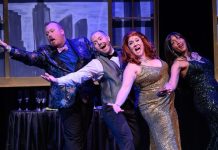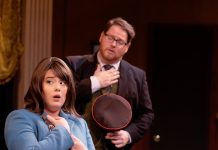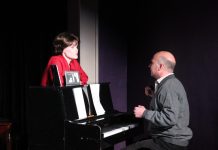It is 1605. The Gunpowder Plot, in which a group of disaffected Catholics attempted to blow up King James I, his wife, his children, and all the political and religious leaders of the age, has just been discovered. London is on edge, and rumors are multiplying. On the night of November 5, when the conspiracy is revealed, bonfires are set in the streets all over London, to keep the city alight and calm the jittery population. It is a time of chaos, and the government must get its story out quickly.
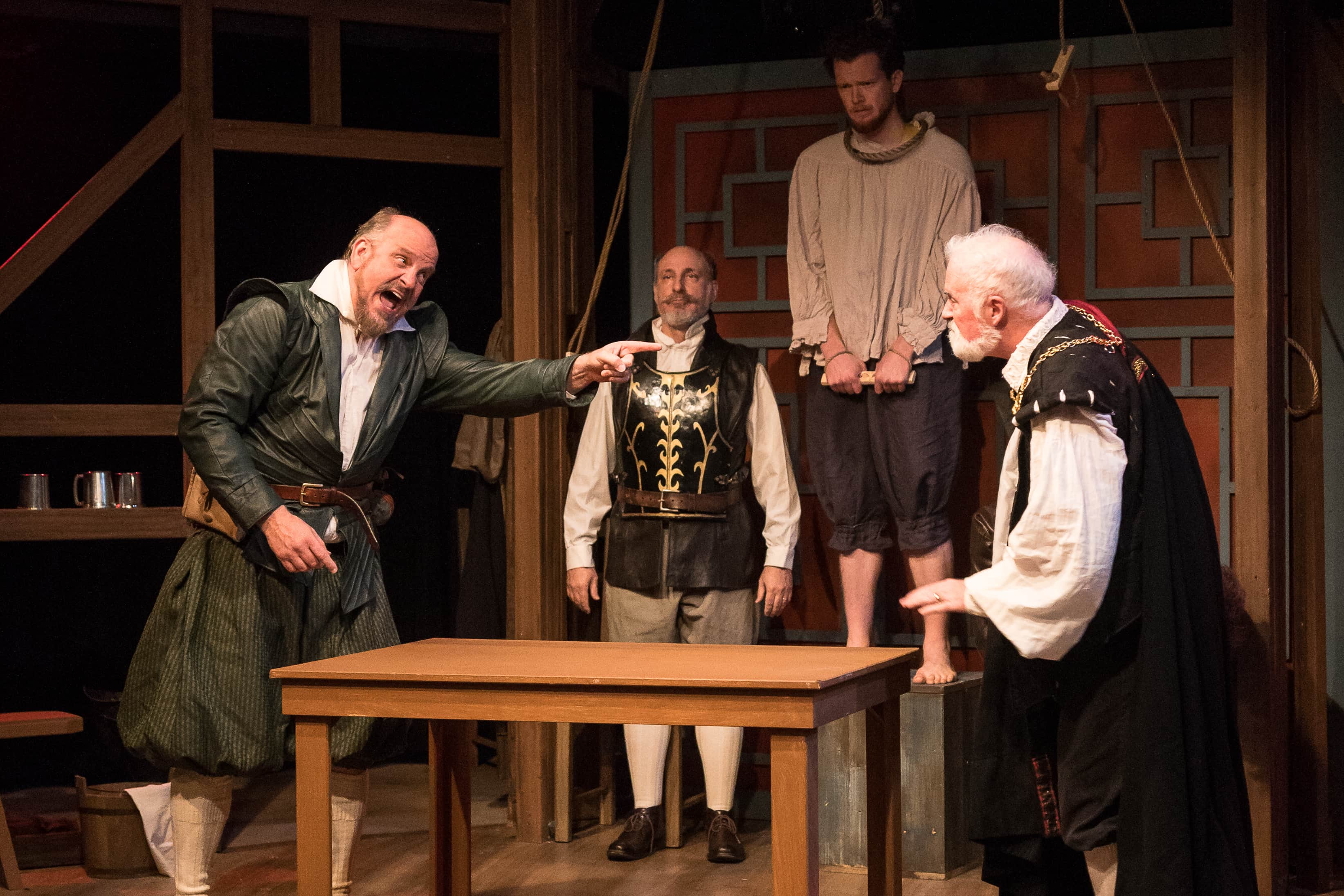
There are, as always, competing narratives. In King James’s version, a mysterious letter was found outlining the plan, which led to a search of Westminster. There, authorities found the gunpowder and an agitated Guy Fawkes guarding the explosives. Some historians have pointed out holes in the story, but for the most part, the official version is now accepted.
Equivocation by Bill Cain takes place in 1606, in the wake of the failed attack. James’s devious counselor, Robert Cecil, feels he has found the perfect person to educate the public. The vehicle will be a play, and the author will be none other than…William Shakespeare!
Equivocation was first produced at the Oregon Shakespeare Festival in 2009, and later at the Manhattan Theatre Club in 2010. It is a bold step for a community theater to stage such a complex and sprawling piece. Silver Spring Stage is recuperating from a flood which occurred last year. Fortunately, with the help of a public fundraiser, they were able to get the financial help they needed to recover. This production is part of their comeback, and it is a most entertaining one. Equivocation has many pleasures, from the witty script, to the appealing performances, to some unusual directorial touches by Director Madeleine Smith which keep the audience laughing. There is an underlying theme which resonates particularly for audiences of today: What does it mean to tell the truth in difficult times?
It is fun to watch Shakespeare (Keith Cassidy) trying to get his mind around the idea of writing a play about current events. A master of what critic James Shapiro calls the oblique approach, Shakespeare, like other Jacobean dramatists, was legally forbidden from writing directly about the death of a monarch. However, in the case of government propaganda, the ban appears to be null and void. Shakespeare becomes captivated by the story, as he interviews the participants and learns more about the incident.
Cassidy’s Shakespeare, here called “Shag,” is both comic and serious, droll and melancholy, much like his writing. He has a thoughtful air, a vibrant sense of humor, and a nonchalant acceptance of the scenes from his works which appear, like dreams, and waltz across our consciousness with giddy frequency.
Gary Sullivan as Cecil is sometimes chilly, sometimes ferocious. Sullivan and Cassidy have some fine scenes together as they struggle to resolve the crisis. Shakespeare’s daughter, Judith (Lena Winter), is not a theater fan, and their relationship is fraught with conflict. Both are suffering from the loss of Judith’s twin, Hamnet. As Judith, Lena Winter has a caustic air and a brisk manner. She doesn’t like soliloquies, but she has quite a few. The struggle between her and her father is well and subtly played.
Tom Howley’s Richard is based on Shakespeare’s star actor, Richard Burbage. Burbage was to appear in King Lear, Macbeth, and Antony and Cleopatra, which were written around this time. Cassidy’s Shakespeare and Howley’s Richard have a loving but contentious relationship. Howley can roar with the best of them, which Burbage was no doubt required to do, and which is a fitting tribute to his distinguished predecessor.
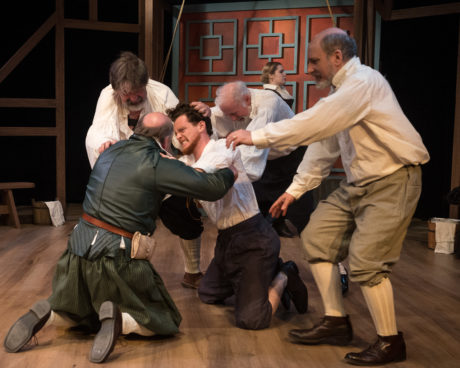
David Dubov plays Robert Armin, one of Shakespeare’s great clowns, who would later originate the role of King Lear’s Fool. He also enacts, among others, Sir Edward Coke, who prosecuted the Gunpowder case, and Robert Catesby, the leader of the conspirators. He even makes quite a fetching Lady Macbeth.
Nicholas Temple is Richard Sharpe, one of the actors in Shakespeare’s company, the King’s Men. He is hilarious as King James and gives a moving performance as one of the accused, Tom Wintour.
Director Madeleine Smith has fostered a tight-knit ensemble, backed up by production values which are modest but effective. The Set Designer is Bridgid Burge. Costumes are by James Hoobler & Jennifer Georgia, Lighting by James Morrison, and Sound by Dylan Sullivan. Bill Dunbar is the Fight Choreographer.
There are so many twists and turns in the plot that it is easy to get lost. Some cuts might be in order, although I would hate to miss the scene of Temple’s King James laughing with manic glee, surrounded by mirrors, in a slightly fractured version of Macbeth. Shakespeare lovers and general audiences alike will enjoy this engaging production.
Running Time: Three hours, with one 15-minute intermission.
Equivocation plays through February 2, 2019, at Silver Spring Stage, 10145 Colesville Road, Silver Spring, MD. For tickets, call the box office at 301-593-6036, or purchase online.


